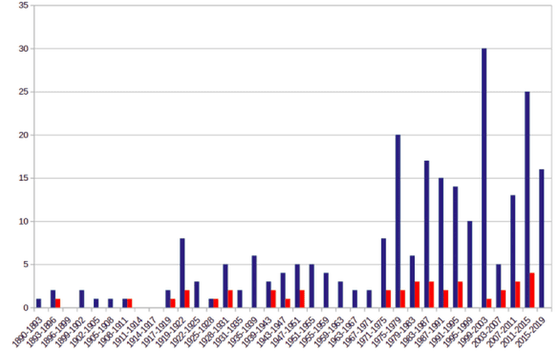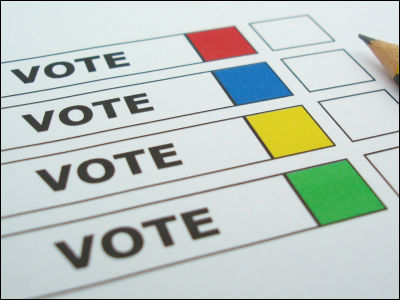In Switzerland, a 'referendum' is actively held to decide laws and systems

The Swiss Federal Republic is a federal republic located in Central Europe and is known for its permanent neutrality. Such Switzerland has a parliamentary governing system with the federal parliament as the highest institution, but as a 'national political participation', a
Swiss Political System: More than You ever Wanted to Know (I.) 250bpm
http://250bpm.com/blog:161/
The modern Swiss Commonwealth is a federal state based on the representative democracy that started with the establishment of the federal constitution in the mid-19th century, and it is similar to the United States in that it adopts a bicameral system composed of representatives of each state. It can be said that it is a representative democracy nation.
But in Switzerland, constitutional changes, tax arrangements, and participation in international organizations must be approved by the public and the canton. Also, legislation enacted by Congress may be challenged and rejected by a referendum. In addition, there is a referendum system on any topic, and if a specified amount of signatures can be collected within a specified time, a referendum will be held and approved by a majority vote.

According to Sústrik, a 37-year-old from Zurich who turned 18 in 2000 experienced 548 referendums. Of these, 181 were federal, 176 were state, and 191 were local. The average turnout is 45%, which means that 37-year-old Swiss citizens participated in an average of 246 referendums.
The following are some of the referendums that have been held so far.
・In a large city such as Zurich and Geneva where rising rents are a problem, at least 10% of new properties are owned by a public interest group, and an initiative to prepare housing for non-profit and low rent. The approval rate was rejected at 46.5%.
・An initiative to add 'prohibition of discrimination based on sexual orientation' to prohibition of discrimination based on race/religion/age/political party. As a result of the referendum, 63.52% of the people voted for it.
・In order to reduce the income disparity, the tax burden on the highest income group, which is 0.69% of the total, will be increased. Opponents have called for a referendum, claiming that the millionaire's move from Switzerland will eventually reduce tax revenues. This initiative was rejected as the result was 42.04%.

・The initiative that the Swiss constitution should take precedence over international treaties. The approval was rejected with 36.3%.
・An initiative submitted by Mr. Armin Capol, a cow herder, to 'give a subsidy to cow herders who do not cut the horns of cows'. The approval was rejected because it was 45.3%.
-An initiative was proposed by several citizens to 'introduce the basic income and to establish the amount of income and financing by law.' The approval was rejected with 23.1%.

In Switzerland, the referendum is constitutionally guaranteed. And when the constitution is amended, it must be approved by a referendum. Also, when participating in an international organization, there is no decision by the government, and a referendum is always held. In fact, when it was considered to join the European Economic Area (EEA) in 1992, it was rejected by a referendum. In 2002, a referendum finally decided to join the United Nations, which is headquartered in Geneva, Switzerland.
'In Switzerland, political topics are essentially non-polar,' said Sústrik. For example, in 2013, a referendum was held against a bill granting the government special authority on vaccination and prevention of infection during an epidemic, and it was rejected. However, Sústrik argued that the negative vote does not mean anti-vaccine, but rather maintains the status quo.
A major feature of the Swiss referendum is the system in which a referendum is held on the initiative proposed by the citizens. This referendum has been held many times from the 19th century to the present day, but as you can see from the graph below, the number has risen sharply since the 1970s. The blue line is the number of referendums, and the red line is the number that was established with a majority vote in favor.

Initially, even if the initiative was proposed and the signatures were collected and submitted, the contents were often left unattended until they lost their political significance. However, the fact that the referendum has become more active since the mass media criticized the issue in the 20th century was one of the reasons why the number of referendums increased after the 1970s. That's one, Sústrik points out.
In addition, the media will be actively involved in the referendum, and materials about the initiative will be distributed free of charge even at tram stops. In addition, Swiss citizens have a habit of actively talking about politics with colleagues, family members, and drinking friends in pubs even during meals, and many people think that “you should express your opinion on a political theme”. But that's why the referendum works in Switzerland, says Sústrik.
Related Posts:
in Note, Posted by log1i_yk







